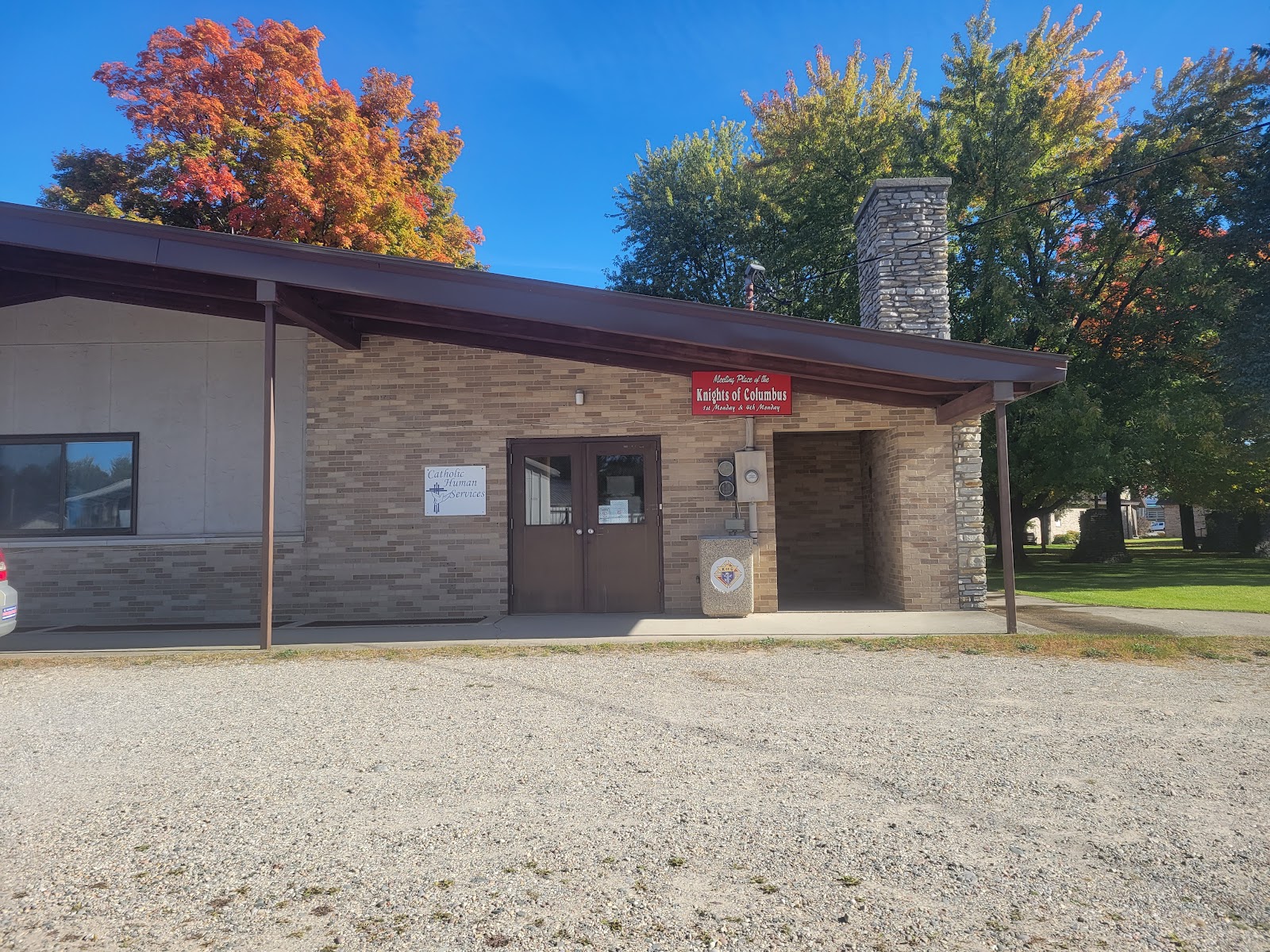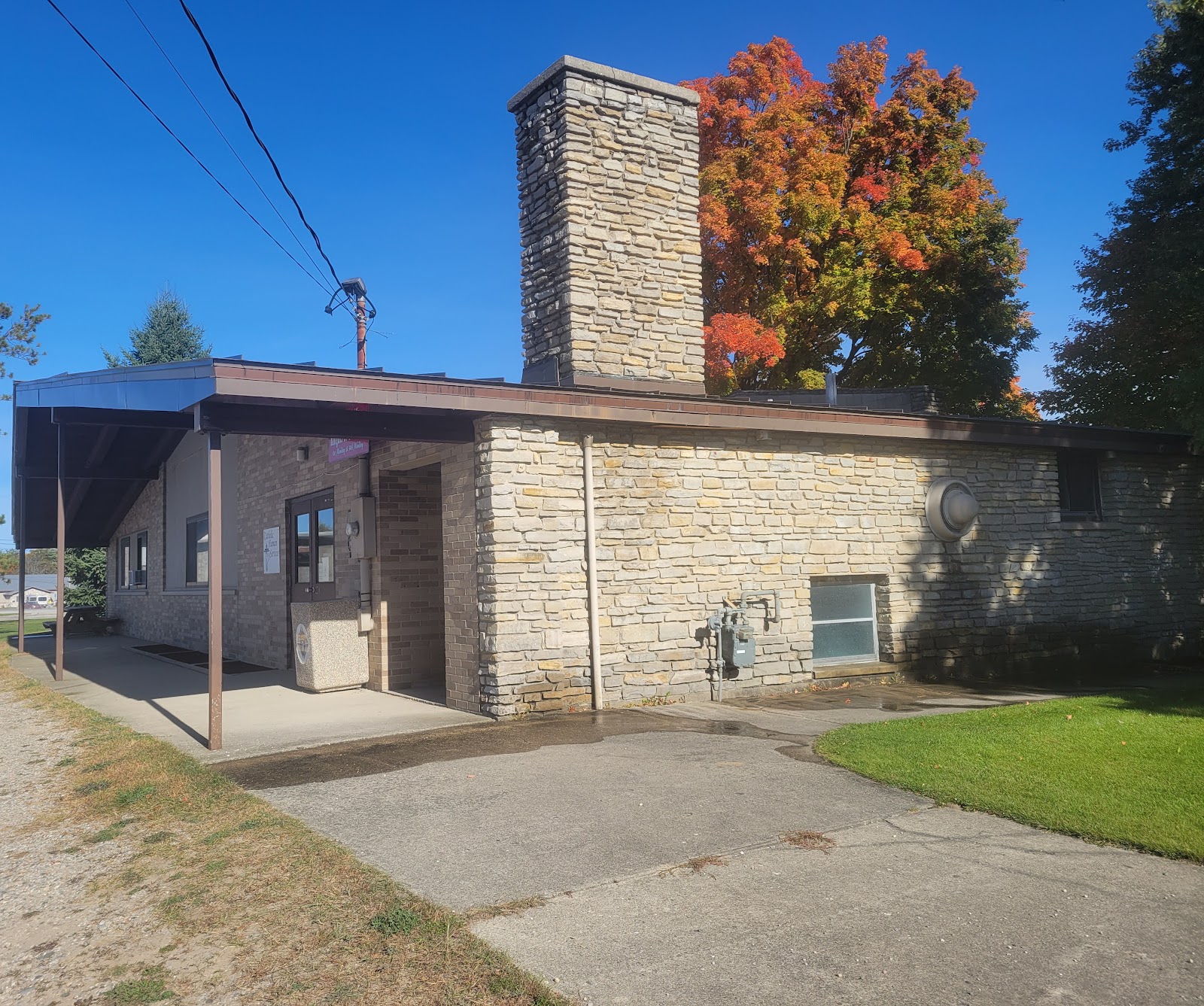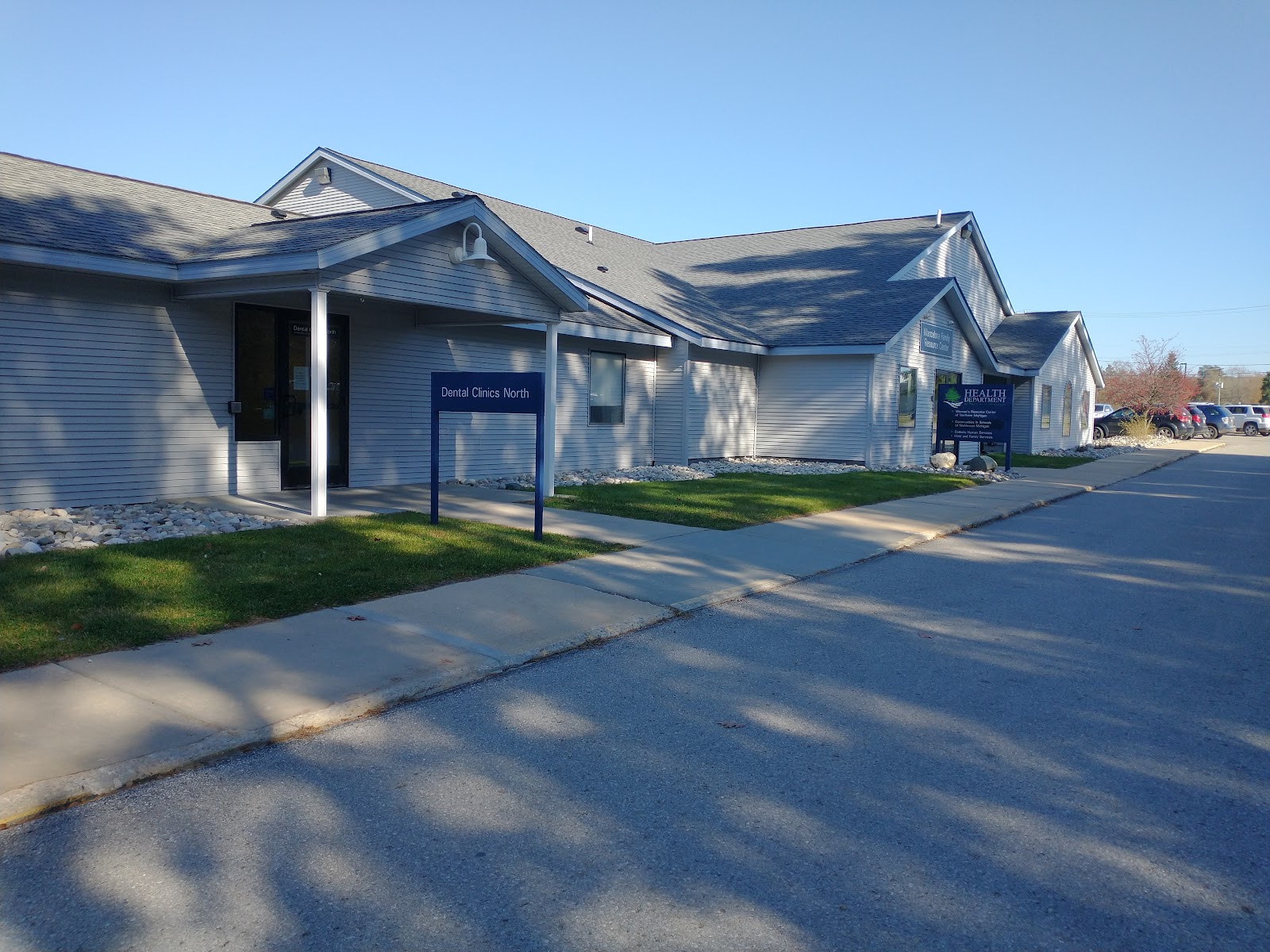Catholic Human Services
Overview
Catholic Human Services is a substance abuse treatment center for people seeking treatment near Alcona County. As part of their treatment modalities for recovery, Catholic Human Services provides 12-step facilitation, group counseling, and family counseling during treatment. Catholic Human Services is located in Harrisville, Michigan, accepting medicaid for treatment.
Catholic Human Services at a Glance
Payment Options
- Medicaid
- Private health insurance
- Cash or self-payment
- State-financed health insurance plan other than Medicaid
- Sliding fee scale (fee is based on income and other factors)
Assessments
- Comprehensive mental health assessment
- Comprehensive substance use assessment
Age Groups
- Adults
- Children/adolescents
- Young adults
Operation
- Private non-profit organization
Accreditations
Commission on Accreditation of Rehabilitation Facilities (CARF):

Established in 1966, the non-profit organization known as the Commission on Accreditation of Rehabilitation Facilities (CARF) has a dedicated focus on accrediting rehabilitation organizations. CARF's primary mission is to assist service providers, particularly rehabilitation facilities, in upholding and promoting the highest standards of care.
Registration: 200273
Treatment At Catholic Human Services

Conditions Treated
Mental health treatment:
Mental health treatment involves a range of therapeutic approaches, provided by licensed professionals, to address mental health challenges. It includes psychotherapy, medication, and holistic practices to help individuals manage conditions, improve coping skills, and enhance overall well-being. The goal is to empower individuals to lead fulfilling lives and reduce the stigma surrounding mental health.
Alcoholism:
Alcohol addiction is a condition where someone feels a strong and uncontrollable urge to drink alcohol, often leading to negative effects on their health, relationships, and daily life. To assist individuals grappling with alcohol addiction, various strategies exist. Initially, supervised detoxification may be necessary to ensure a safe cessation of alcohol consumption. Following this, counseling and therapy play a crucial role in addressing the psychological facets of the addiction. Engaging in support groups can also offer a sense of camaraderie and comprehension.
Opioid Addiction:
Opioid rehabilitation centers are dedicated to assisting individuals on the path to recovery from opioid addiction. They provide specialized care for those struggling with addiction to substances like heroin and prescription opioids such as oxycodone. These facilities offer a comprehensive approach, including medical detoxification, ongoing medical assistance (including medication-based treatment), and therapeutic support to address the root causes of addiction.
Substance use treatment:
Substance abuse treatment programs can help to address addiction and, if relevant, any co-occurring mental health conditions. Programs include outpatient, inpatient, dual-diagnosis, and partial hospitalization. The addict will receive therapies like cognitive behavioral therapy, or dialectical behavioral therapy, and sometimes complementary therapies like acupuncture and mindfulness-based therapy. By attending skills training and recovery groups you’ll build a strong foundation for your recovery and strengthen your support network, increasing your chances of long-term recovery success.
Co-occurring Disorders:
Dual-diagnosis rehabilitation centers usually offer the most suitable approach for addressing concurrent mental health and substance abuse conditions. Within these facilities, a team of medical and behavioral professionals is typically assembled, employing diverse interventions and cultivating an optimal therapeutic environment to enable you to attain and maintain lasting recovery. The treatment regimen often encompasses evidence-based therapies, such as cognitive behavioral therapy, complemented by recovery support gatherings, 12-step program facilitation, skills development, and group therapy.

Levels Of Care
Detoxification:
Detoxification, often just called "detox", is like giving the body a deep clean from harmful substances like drugs or alcohol. When someone decides to stop using these substances, their body might react with tough symptoms. Detox helps to handle these reactions safely. Think of it as helping the body reset after too much exposure to harmful stuff.
Outpatient:
Outpatient treatment at rehab centers provides adaptable therapy schedules, usually spanning 1-3 hours weekly, enabling participants to maintain their everyday routines while undergoing treatment. On the other hand, intensive outpatient programs require a more dedicated time investment, frequently around 9-15 hours a week, delivering a deeper therapeutic experience without the commitment of inpatient residency.

Treatment Modalities
12-step facilitation:
12-Step Facilitation is a structured approach to recovery used in many rehab facilities. It's rooted in the principles and practices of Alcoholics Anonymous (AA) and its 12-step program. The facilitation process promotes abstinence and supports individuals in becoming actively involved in 12-step self-help groups. The approach emphasizes personal responsibility, spiritual growth, and the importance of peer support to maintain sobriety and prevent relapse. By guiding individuals through each step, 12-step Facilitation aids participants in understanding the underlying causes of their addiction, seeking amends, and fostering a commitment to lifelong recovery.
Group counseling:
Group therapy entails therapeutic sessions conducted in a collective setting rather than one-on-one. It encompasses various modalities, from support groups and experiential therapy to psycho-education and beyond. The approach focuses on treatment and emphasizes the dynamic interactions and shared experiences among group members.
Family counseling:
Family Counseling is a therapeutic approach that seeks to address and improve communication, understanding, and dynamics within a family unit. By addressing conflicts, emotional distress, and behavioral challenges, a trained therapist provides guidance and tools for family members to strengthen bonds, resolve issues, and foster a healthier family environment.
Individual psychotherapy:
Individual therapy, often referred to as psychotherapy or counseling, is a one-on-one therapeutic interaction between a trained therapist and a client. It provides a confidential space for individuals to explore their feelings, beliefs, and behaviors, working through challenging memories, experiences, or emotions. The therapist facilitates self-awareness, promotes personal growth and insight, and offers coping strategies to manage specific issues like stress, anxiety, depression, and other life challenges. The ultimate goal is to improve the individual's mental well-being and enhance their overall quality of life.
Cognitive Behavioral Therapy:
Cognitive Behavioral Therapy (CBT) is a therapeutic approach that emphasizes the interconnectedness of thoughts, emotions, and actions. It promotes healthy reactions to thoughts and emotions, steering individuals away from harmful responses such as substance abuse. Proven effective for various addiction recoveries, CBT enhances an individual's self-awareness and self-control. Through CBT, individuals learn to better gauge their emotional well-being, communicate more effectively, and handle stress without resorting to drugs or alcohol.
Dialectical Behavior Therapy:
Dialectical Behavior Therapy (DBT) is an evolved version of Cognitive Behavioral Therapy (CBT) that aims to assist individuals in recognizing and influencing the interplay among their thoughts, emotions, and actions. DBT is particularly beneficial for those grappling with self-harming behaviors, including self-inflicted injuries like cutting, as well as suicidal ideations or tendencies. Clinically, it has shown effectiveness in managing intense emotions and conditions such as Borderline Personality Disorder.
Marital/couples counseling:
Whether a marriage or other committed relationship, an intimate partnership is one of the most important aspects of a person's life. Drug and alcohol addiction affects both members of a couple in deep and meaningful ways, as does rehab and recovery. Couples therapy and other couples-focused treatment programs are significant parts of exploring triggers of addiction, as well as learning how to build healthy patterns to support ongoing sobriety.
Motivational Interviewing:
Motivational Interviewing (MI) is a clinical approach to helping people with substance abuse issues and other conditions shift behavior in positive ways. It is more goal-oriented than traditional psychotherapy, as MI counselors directly attempt to get clients to consider making behavioral change (rather than wait for them to come to conclusions themselves). Its primary purpose is to resolve ambivalence and help clients become able to make healthy choices freely.
Trauma-related counseling:
Trauma therapy addresses the underlying emotional and psychological wounds that may contribute to an individual's substance abuse. Through a combination of psychotherapy and coping strategies, individuals are aided in processing past traumatic experiences, understanding the impact of trauma on their current behavior, and developing healthier coping mechanisms. This holistic approach fosters resilience, aids in the resolution of trauma, and is fundamental in supporting individuals on their path toward sustained recovery from addiction.
Holistic Treatment:
Holistic Treatment refers to an integrated approach to recovery that addresses the physical aspects of addiction and the individual's emotional, mental, and spiritual needs. This method incorporates a variety of therapies, practices, and activities, such as nutrition, mindfulness, yoga, and counseling, to promote overall well-being, self-awareness, and balance. By treating the whole person, holistic treatment aims to ensure a more comprehensive and sustainable recovery.
Ancillary Services
Languages
- Sign language services for the deaf and hard of hearing
Special Programs
- Clients who have experienced trauma

Additional Locations
Contact Information
DISCLAIMER: The facility name, logo and brand are the property and registered trademarks of Catholic Human Services, and are being used for identification and informational purposes only. Use of these names, logos and brands shall not imply endorsement. BetterAddictionCare.com is not affiliated with or sponsored by Catholic Human Services.





